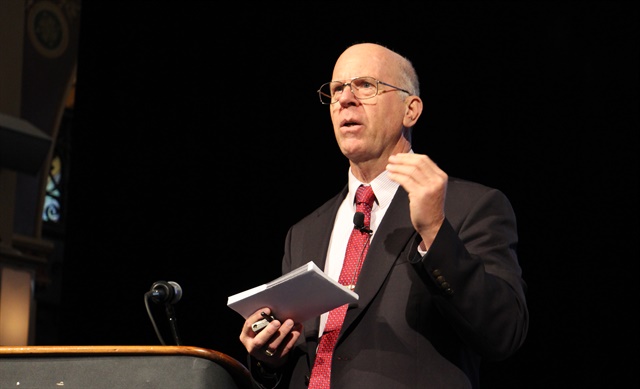<img width="150" src="http://www.automotive-fleet.com/fc_images/news/m-meckstroth-ftr2016-eel-1.jpg" border="0" alt="
Daniel Meckstroth, chief economist with the Manufacturers Alliance for Productivity and Innovation, expects a fourth-quarter spike in production. Photo: Evan Lockridge
">
Daniel Meckstroth, chief economist with the Manufacturers Alliance for Productivity and Innovation, expects a fourth-quarter spike in production. Photo: Evan Lockridge
">While a recovery for freight and the overall U.S. economy is in the cards for the fourth quarter of the year, those attending the first sessions of the FTR Transportation Conference in Indianapolis on Wednesday were also told by experts they should not expect a huge boom.
Daniel Meckstroth, chief economist with the industry group the Manufacturers Alliance for Productivity and Innovation (MAPI), said that after a long while July shows “the first indication that the manufacturing inventory-to-sales ratios are falling” after higher levels hurt freight shipments earlier in the year. The July level is also the lowest in about two years.
“In the future, we are going to get a spike in production, I think is going to occur in the fourth quarter … not only in the manufacturing sector but [also] in the U.S. economy,” he said.
The reason, Meckstroth said, is that inventory cycles, such as the high one manufacturing has experienced lately, are usually short. When they are over, you typically see a spike in production.
High inventories have been a drag on economic activity as well as freight movements, but now they are coming into closer balance. This results not only in better sales of manufactured goods but others as well, resulting in an improvement in the general economy.
Helping this along is the ever-resilient U.S. consumer, who accounts for about 70% of all U.S. economic activity. Meckstroth said “consumers are keeping us out of a recession.” How are they doing it? Because, as he put it, “we are in a jobs boom, with the percentage of new jobs being adding being much faster than overall economic expansion.”
“It's new jobs creating new income…that's what's propelling









